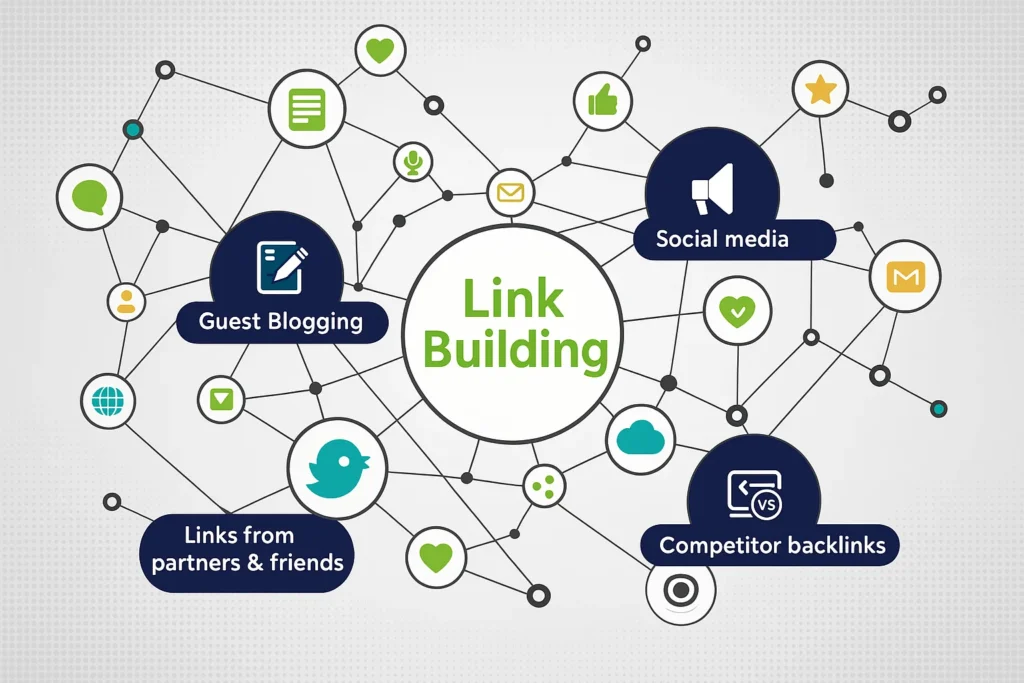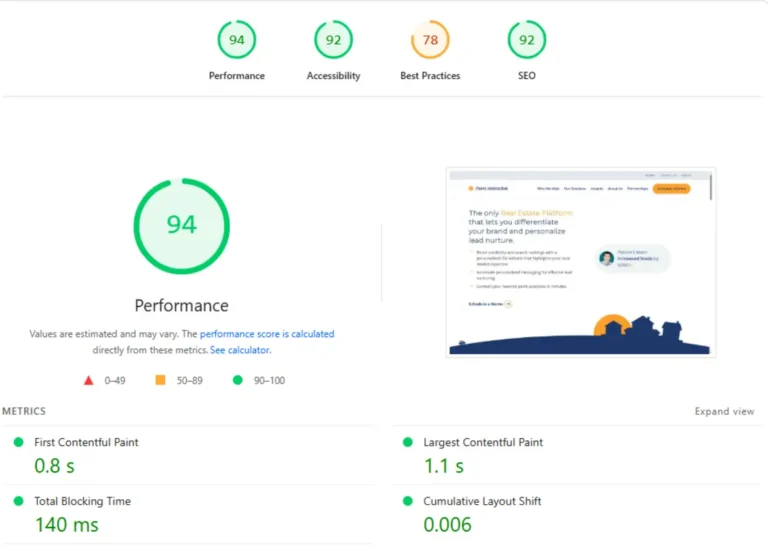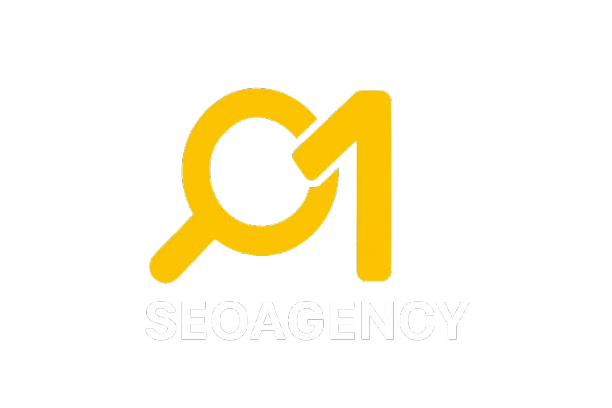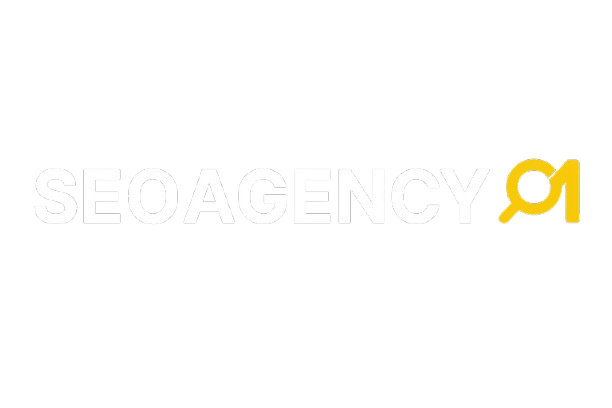7Enterprise SEO Secrets: Hidden Strategies for 2025
For enterprise-level businesses, traditional SEO is no longer enough. The real challenge involves managing thousands of pages, resolving technical depth, and competing against well-funded industry leaders. Basic optimization efforts often lead to stagnant results and missed opportunities.
The solution requires a shift from simple fixes to a comprehensive strategy built for scale and complexity. This guide details the essential components of a modern enterprise SEO program. We will explore the critical pillars of technical excellence, content authority, and analytical insight that work together to secure top rankings and drive meaningful business results.

Why Enterprise SEO Strategy Matters More Than Ever in 2025
For large corporations, a dominant online presence is non-negotiable. In 2025, a sophisticated enterprise SEO strategy is the cornerstone for maintaining a competitive edge and connecting with a massive audience of potential customers.
The foundation of any successful program is a comprehensive technical website audit. Identifying and resolving underlying site issues is the critical first step toward achieving superior organic performance and visibility.
The Critical Gap Between Standard SEO and Enterprise SEO
While standard SEO assists a small business in attracting local clients, enterprise SEO operates on a completely different scale. It involves orchestrating a vast digital footprint—often tens of thousands of web pages—for an international organization.
Consider this analogy:
Standard SEO: Is like maintaining a single-family home.
Enterprise SEO: Is like governing an entire metropolis, including its infrastructure, traffic systems, and utilities.
The core distinction lies in the sheer scale and complexity. You are not merely pursuing a handful of keywords; you are architecting an entire digital ecosystem for sustained growth and online authority.
How a Single Strategic Pivot Can Transform Your Brand Visibility
Massive, expensive overhauls are not always necessary. Often, a nuanced shift in your content strategy can yield dramatic results. For instance, pivot your focus to optimizing high-value category pages and topic clusters instead of concentrating solely on individual product pages.
These landing pages possess significant ranking potential for broader, more authoritative topics. By enhancing them with strategic semantic search principles and a robust internal linking structure, you can funnel a steady stream of qualified traffic to entire sections of your website. This calculated approach to organic traffic acquisition can rapidly amplify your brand visibility and market share.
Services


Secret #1 – The Power of Data-Driven SEO Decisions
The best way to improve your website’s search ranking is to use data. Stop guessing what works. Start using real information to make smart choices.
For example, many local businesses like those in real estate and landscaping often miss high-intent keywords. These are specific phrases that could bring clients who are directly ready to buy or hire a service.
A plumber can use this same strategy. By looking at the data, they can find urgent search terms they are missing, like “24/7 emergency plumber near me,” and create content to target those valuable customers.
How Leading Companies Predict Search Trends
Successful businesses don’t try to guess Google’s next move. They analyze information to spot patterns. This approach helps them understand the search landscape and outperform their rivals.
They seek answers to important questions, such as:
Which pages attract the most visitors?
What specific phrases do people type to find my site?
Are there search terms my competitors rank for that I am missing?

Popular Tools for SEO Analysis
Platforms like SEMrush and Ahrefs are widely used for SEO analytics. These services monitor your website’s health and performance. They provide clear insights into your successful strategies and areas that need improvement.
Here is a simple table showing the advantages and disadvantages of these powerful platforms.
SEMrush and Ahrefs are both SEO tools — they help people understand how well their websites are doing on Google and how to improve them.
Here’s a simple breakdown:
SEMrush
Semrush is a big online marketing toolkit. It offers tools not just for SEO but also for content, paid ads, social media, and local SEO.
Main features include:
Keyword Research
Site Audit
Content Optimization
Backlink & Link Building
Rank Tracking
Competitive Analysis
Advertising Tools
What You Can Do with Semrush:
Find the best keywords for your website.
Check and fix technical errors on your site.
See your competitors’ traffic and keywords.
Get content ideas and build SEO-friendly pages.

Ahrefs — What It Is and Main Features
Ahrefs is mainly known for its strong SEO and backlink data.
It includes:
Site Explorer
Keywords Explorer
Content Explorer
Site Audit
Rank Tracker
Ahrefs updates its backlink index quickly and helps you check backlink history in detail.
What You Can Do with Ahrefs:
View all backlinks of any website.
Find out which pages perform best for your competitors.
Scan your site for 100+ technical issues (Site Audit).
Use Ahrefs Webmaster Tools for free to get limited but useful data.

Secret #2: Building a Winning SEO Team
To succeed in SEO, you need more than just writers. A powerful team includes different experts working together. This is the best way to increase your website’s visibility and grow your business.
How to Build a Team for Strong SEO Results
Think of your team like a sports team. Every member has a specific role. Here is a simple and effective team structure:
The SEO Strategist: This person creates the master plan. They find the best keywords to target and guide the team’s overall direction.
The Content Creator: This person writes the high-quality articles and web pages that provide value to your readers and answer their questions.
The Technical Expert: This person ensures your website performance is top-notch, making it fast, easy to use, and simple for search engines to crawl and index.
When these specialists collaborate, your website becomes a powerful engine for growth.
Why a Single Writer Isn’t Enough for Big SEO Goals
Relying on one writer limits your potential. While they may be excellent at writing, they can’t also be an expert in the technical side of your site. Asking one person to do everything leads to slow progress and missed opportunities. You need a complete, skilled team to achieve real, lasting success.
The Best Team Structure for Top Search Engine Rankings
Successful companies use a collaborative team model. The strategist, writer, and technical expert all share ideas and feedback. This teamwork improves your content quality and strengthens your entire online presence. It is the most reliable path to reaching the top of Google’s search results.

Secret #3 How to Find and Fix Hidden Website Problems
Sometimes, small, unseen mistakes on your website can stop visitors from finding it. These are known as technical errors. While they are hard to spot, they can cause you to lose a significant amount of web traffic.
Common Technical Issues That Hurt Your Traffic
Large websites with thousands of pages often face these hidden problems. Here are some of the most frequent ones:
Broken Links: A link that leads to a missing page, resulting in a “404 error.”
Slow Loading Speed: Your web pages take too long to appear.
Duplicate Material: The same article or product description appears on multiple web addresses (URLs).
These problems create a poor user experience and confuse search engines. This often leads to a lower ranking in search results, meaning fewer people can discover your site.
“While automated tools are helpful, nothing replaces expert analysis. For a limited time, we’re providing free enterprise SEO audits that cover all the technical aspects discussed in this guide. This no-obligation audit gives you a clear roadmap to fix hidden issues and boost your organic visibility.”
Secret #4 Building Trust is More Valuable Than Just Collecting Links
Before people buy from you, they need to trust your website. A strong reputation is the real key to success.
Why Trust and Reputation Beat a High Number of Links
Having a few links from highly-respected websites is far more powerful than having many from low-quality sources. Search engines like Google want to see that real people view you as a credible expert.
Trust signals are a critical factor. A website with a solid, positive reputation will consistently achieve better rankings.
Always focus on the user experience. A fast, helpful, and easy-to-use website builds confidence and trust with every visitor.
Work on earning positive reviews and testimonials. These act like powerful votes of confidence from your happy customers.
Brand Mentions: A Modern Way to Build Authority
When people discuss your company online, even without a link, it helps establish your authority. This is called a “brand mention.”
For example:A popular blog might write, “For excellent customer service, we use seoagency1” Even without a clickable link, this tells Google that your brand is important and recognized.
Your main goal should be to be talked about on other well-regarded websites and social platforms. This demonstrates that you are a leader in your industry.

Secret #5 How to Improve Your Website for Better Google Rankings
To get more visitors from Google, you need to create a better experience for your users. Start by making your site faster and organizing your information clearly. These steps please both Google and your audience.
Here is a simple way to check your website’s health:
Test your loading time. Use free tools like Google PageSpeed Insights.
Review your own writing. Is it easy to understand? If it’s confusing for you, it will be unclear for Google.
Fix broken links. Links that don’t work create a poor experience for everyone.
Making these improvements helps your website’s overall health. A well-maintained site is more likely to rank higher in search results.
Using Free Tools for Your SEO Plan
You don’t need to spend money to begin. Many free tools can guide your SEO strategy. They help you discover the right terms to use on your pages.While free tools are great for starters, enterprises typically need enterprise-grade solutions.[seoagency1] bridges this gap with professional tools at agency pricing.
A solid plan has two main parts:
Find keywords that your potential customers are searching for.
Create useful content that provides clear answers to their questions.
This method builds trust with your readers. They will begin to see you as a helpful and reliable source of information.
Simple Steps to Make Your Writing Easy to Read
People often skim articles before deciding to read them. You can make your content easy to scan by using clear formatting. This improves the reading experience for all your visitors.
Follow these tips for better articles:
Use descriptive subheadings to break up long sections of text.
Write short sentences and keep paragraphs brief.
Use bullet points to highlight key information.
When your content is easy to read, people stay on your page longer. This positive signal tells Google that your website is valuable and worth recommending.
Secret #6 Simple Steps to Dominate Local Search for Your Global Brand
Here is a straightforward guide for large companies to appear in local search results worldwide. The core strategy is to build dedicated, location-specific pages instead of relying on a single global site.
1. Create Unique Local Pages
Build a dedicated webpage for every major city, country, or region you serve. This signals to search engines that your content is highly relevant to people in that specific community.
2. Optimize Page Titles and Headings
Naturally include the location’s name in essential areas. Place the city or region name in the page’s title tag and primary heading to immediately show what area the page serves.
3. Feature Local Contact Information
Always display a local business address and phone number. This builds immediate trust with potential customers and confirms your local presence to search engines.
4. Use Authentic Local Language
For international audiences, translate your content into the local language. Avoid automated translation tools; use a professional service for natural, accurate phrasing that resonates with the culture.
5. Implement Geo-Targeting Signals
Use technical signals like schema markup (structured data) and local business listings to tell search engines exactly which geographical area each page is targeting.
6. Act Like a Local Business
A global brand can succeed locally by thinking and acting like a community-based company. Tailor your content to mention local events, landmarks, or needs to build a genuine connection.
7. Build Local Citations and Listings
Ensure your business name, address, and phone number (NAP) are consistently listed in major online directories and local listings for each location. This strengthens your local search ranking.
8. Focus on User Experience and Relevance
Ultimately, the goal is to provide a helpful, relevant experience for the user. When someone in a specific city finds your page, the information should feel personalized and directly useful to them.

Secret #7How to Build a Flexible SEO Plan for 2025
The best way to future-proof your search engine optimization is to create an adaptable plan. Search engines constantly update their algorithms, so your strategy must be able to pivot quickly. Focus first on being genuinely helpful to your audience, and improved rankings will be a natural result.
The Hidden Quality Signals Search Engines Use
Google now closely watches how real people interact with your website. It’s not just about keywords anymore. Think of these as behind-the-scenes quality checks that influence your visibility.
User Experience (UX): Is your site easy and enjoyable for visitors to navigate?
Core Web Vitals: Does your page load quickly, feel responsive, and remain stable as it loads?
E-E-A-T: Does your content demonstrate real-world Experience, Expertise, and is it Authoritative and Trustworthy?
For instance, if visitors leave your page immediately, Google may see that as a negative signal. However, if people stay to read and explore, it tells the algorithm your page offers genuine value.
Creating a Dynamic SEO Strategy That Adapts Quickly
A rigid, yearly plan is no longer effective. You need a fluid system that allows you to regularly refresh your content and tactics. This agile approach is how you build a strong online presence and stay ahead of the competition.
faqs
1. What is an enterprise in the USA?
Enterprise SEO is a large-scale search optimization strategy for big companies. It helps brands with hundreds or thousands of web pages rank higher in search results in the USA and global markets.
2. How is enterprise SEO different from regular SEO?
Regular SEO focuses on smaller websites. Enterprise SEO handles bigger challenges like multi-location targeting, multilingual content, and advanced technical issues.
3. Why is enterprise SEO important for companies in 2025?
Because competition is growing. More businesses are going online, and enterprise SEO helps big brands keep visibility in both Arabic and English searches.
4. Do companies need Arabic SEO?
Yes. Many USA customers search in Arabic. Optimizing in Arabic helps capture a wider audience and improves trust with local users.
5. Can enterprise SEO improve global rankings for USA companies?
Yes. With the right strategy, usa-based companies can target customers in other countries while keeping strong local rankings.
6. How long does it take to see results from enterprise SEO?
It depends on website size and competition. Most large companies see strong results in 6–12 months with consistent effort.
7. What are common mistakes
Ignoring mobile optimization, skipping technical audits, and not adapting content for both Arabic and English users are common issues.
8. Is PPC still needed if we invest in enterprise SEO?
Yes. SEO builds long-term visibility, while PPC drives instant traffic. Both work well together for brand growth.
9. How do companies choose the right keywords for enterprise SEO?
They use market research, competitor analysis, and tools to find keywords in both Arabic and English with high search volume and low competition.
10. What will change in enterprise SEO by 2025
AI tools will make keyword research faster, search engines will focus more on user experience, and voice search will play a bigger role in rankings.
Miniblog related:
Enterprise SEO Trends 2025: Fearless Tactics Driving Remarkable Victory
Is your enterprise website struggling to keep up with Google’s constant algorithm updates and AI-driven search results? You’re not alone. In 2025, enterprise SEO is critical because search behavior has fundamentally shifted. Users now demand direct, conversational answers and hyper-relevant content, moving beyond simple keywords.
Success hinges on your ability to adapt to rapid core algorithm shifts, master semantic search and NLP (Natural Language Processing) for topic authority, and leverage AI-powered content strategies.
This new landscape rewards those who prioritize deep user experience and E-E-A-T (Expertise, Experience, Authoritativeness, Trustworthiness), making robust organic visibility a primary driver of sustainable growth and remarkable market victory.
How to Optimize Real Estate Content for AI Search Engines
AI-driven search, like Google’s Gemini, is changing how people find homes and real estate advice. It doesn’t just match keywords; it understands the full context of a user’s question. To rank well, your content must provide genuine value and demonstrate expertise. For real estate agents and websites, this means focusing on the user’s intent behind the search.
Focus on Topic Clusters:
Instead of writing one page on “Austin real estate,” create a hub of content. Write a pillar page on “Moving to Austin, TX,” then link to more specific articles like “Best Austin Suburbs for Families” or “First-Time Home Buyer Programs in Texas.” This shows AI you are a comprehensive resource.
Prioritize Natural Language:
Write how you speak. Answer the specific questions clients ask you in person, like “What are the hidden costs of buying a new construction home?” This natural phrasing matches how people use AI assistants.
Structure for Featured Snippets:
AI often pulls data for direct answers. Use clear headers (H2, H3) and bullet points to break down complex topics. This makes it easy for algorithms to scan and “understand” your content, increasing the chance it will be used as a source.
Using AI Content Tools Responsibly for Real Estate
AI can help scale your content creation for blog posts and market updates, but trust is your most important asset in real estate. Use AI as a tool to enhance your expertise, not replace it.
Always Add Human Experience: An AI can write a property description, but only you can add that you felt the warm morning sun in the master bedroom or heard the quiet, family-friendly vibe of the neighborhood. This unique insight is invaluable.
Fact-Check Everything: AI can make mistakes. Double-check all data, especially square footage, lot size, property taxes, and school ratings. Providing inaccurate information can destroy your credibility and lead to legal issues.
Disclose AI Use Ethically: Be transparent if you use AI-generated content. Your audience will appreciate your honesty, and it builds long-term trust.
Pros vs. Cons of AI-Generated Real Estate Content
| Pros for Scaling Content | Cons for Building Trust |
|---|---|
| Quickly generates neighborhood guides and market reports. | Can lack the local nuance and personal experience of a real agent. |
| Helps overcome writer’s block for blog post ideas. | Risks producing generic, repetitive information that doesn’t stand out. |
| Can optimize meta descriptions and page titles for SEO. | Requires significant human editing to inject personality and verify facts. |

How to Perform a Technical SEO Audit for Real Estate Websites
A strong technical foundation ensures your real estate listings are found and provide a good experience. Focus on these two areas:
Perform a data-driven audit using tools like Google Search Console and PageSpeed Insights. This helps you identify critical errors that stop Google from crawling your site, like broken links (404 errors) on listing pages or slow-loading image galleries. Fixing Core Web Vitals issues, especially Largest Contentful Paint (LCP) which is often caused by large, unoptimized property images, is a top priority for ranking and user retention.
Add structured data and schema markup to your property pages. This code helps search engines understand your content, leading to enhanced rich results in search. For a real estate agent, this means your listings can appear with more detail—like price, number of bedrooms, bathcount, and square footage—directly in the search results, which significantly increases click-through rates.
Pros vs. Cons of Different Audit Methods
| Method | Pros | Cons |
|---|---|---|
| Google Search Console | Free, direct data from Google, shows real crawl errors and indexing status. | Can be complex for beginners; data is slightly delayed. |
| Paid SEO Platforms (e.g., Ahrefs, Semrush) | Comprehensive, combines crawl data with ranking analytics, good for competitor analysis. | Expensive monthly cost; can present information overload. |
| Manual Code Review | Free gives you complete control to find very specific issues. | Extremely time-consuming; requires advanced technical knowledge. |
How to Structure Your Website for Real Estate Leads
A clear website structure helps both users and search engines find what they need. This improves your search engine visibility and generates more qualified buyer leads. Follow these actionable tips for a user-friendly site.
Create a logical menu with clear headings like “Search MLS Listings,” “Our Communities,” and “Home Valuation Tool.”
Use internal linking to guide visitors. For example, link from a blog post about “first-time home buyer tips” to your active listings page.
Ensure your site is mobile-ready. Over 60% of all web traffic is mobile; a slow or poorly designed site will lose leads instantly.
Comparing Website Platforms for Realtors
| Option | Pros | Cons |
|---|---|---|
| IDX-Integrated WordPress | Full control, excellent for local SEO, highly customizable. | Requires more technical knowledge or a developer. |
| All-in-One Real Estate Platform (e.g., Real Geeks) | Built for lead generation, includes CRM, easier setup. | Less flexible design, often a higher monthly cost. |
Why User Experience (UX) is Key for Real Estate Sites
A positive user experience keeps potential clients engaged. If users get frustrated, they will leave and likely call your competitor.
Improve page loading speed. A one-second delay can reduce conversions by 7%.
Add clear call-to-action buttons (CTAs) like “Schedule a Viewing” or “Get a Free Home Report” on every page.
Use alt-text for all images of listings to improve accessibility for visually impaired users and provide context for search engines.
Optimizing Content for Local Home Buyers
To attract local traffic, your content must solve problems for people in your target market.
Write neighborhood guides that answer common questions about schools, markets, and commute times.
Feature your past client testimonials prominently to build trust with new home sellers.
Maintain a blog with topics like “Understanding Mortgage Pre-Approval” to establish yourself as a local expert.
How to Stage Your Home for a Faster Sale
Staging your home is a powerful tool to make it appeal to the widest range of potential buyers. It helps them visualize living there, which can lead to a quicker sale and a higher final price. Follow these actionable tips to prepare your property.
Declutter Every Surface: Remove personal items like family photos and excessive knick-knacks. The goal is to create a neutral, spacious environment so buyers can imagine their own life in the space.
Maximize Natural Light: Open all curtains and blinds before a showing. A bright home feels larger, warmer, and more welcoming. As expert stager Barb Schwarz says, “Light is a key element in making a room feel inviting.”
Define the Purpose of Each Room: Ensure every room has a clear purpose. A spare bedroom should be set up as a bedroom, not a storage closet. This clarifies the home’s functionality for buyers.
Focus on Curb Appeal: The first impression is critical. Mow the lawn, trim bushes, and add a fresh coat of paint to your front door. This simple step can significantly boost your home’s perceived value.
Pros vs. Cons of Professional Home Staging
| Pros | Cons |
|---|---|
| Potentially higher sale price (stats show staged homes often sell for more). | Upfront cost for professional services can be high. |
| Faster sale time by attracting more buyer interest. | Requires the homeowner to depersonalize and pack away belongings early. |
| High-quality photography for listings, which is crucial for online views. | Not a guaranteed sale; it depends on the overall market conditions. |
Why a Comparative Market Analysis is Essential
Before you list your home, you must understand its value in the current market.
A Comparative Market Analysis (CMA) is a report prepared by a real estate agent that compares your property to similar recently sold homes in your area. This in-depth analysis is the best way to set a competitive and realistic listing price, which is the most important factor in selling your home. An accurate price attracts serious buyers and helps you avoid the pitfall of your house sitting on the market for too long.
To build authority and gain trust with both buyers and sellers, successful real estate agents provide detailed, data-driven CMAs. This expert content demonstrates deep local market knowledge, which is a key relevance signal that can lead to more client referrals and quality backlinks from local business directories and community websites.
How to Align PPC and Organic Search for Maximum Visibility
To dominate search engine results, you must unify your paid and organic strategies. This approach creates a powerful, cohesive presence that captures more real estate on the SERP (search engine results page). Here’s how to do it:
Conduct Unified Keyword Research. Use the same semantic keywords for your SEO content strategy and your PPC campaigns. Analyze your high-performing organic pages and use those insights to inform your paid ad groups.
Own the Entire Search Results Page. When a user searches for a term like “best real estate agents in Austin,” aim to have your brand appear in both the paid ads at the top and the local SEO pack or organic listings below. This dominates SERP real estate and significantly increases click-through rates.
Use Paid Data to Inform Organic Efforts. Your Google Ads provides immediate performance data. Identify which paid keywords drive the most conversions and then create detailed, SEO-optimized blog posts or landing pages targeting those same terms organically.
Using Predictive Analytics to Find New Traffic Opportunities
Predictive analytics uses historical data and machine learning to forecast future trends. For real estate marketers, this is a game-changer for spotting untapped demand.
Identify Emerging Markets. Analyze search query data to spot neighborhoods or property types (e.g., “single-family homes,” “multi-unit properties”) that are seeing a steady increase in search volume before they become highly competitive.
Anticipate Homebuyer Needs. By analyzing data trends, you can create content that answers future questions. For example, if data shows rising searches for “energy-efficient homes,” you can produce content around that topic before your competitors do.
Optimize Budget Allocation. Predictive models can forecast which marketing channels and keyword clusters will yield the highest ROI, allowing you to shift your budget strategically for maximum impact.
Why First-Party Data is Crucial for Real Estate Insights
With increasing privacy regulations, relying on third-party data is less effective. Instead, use your website’s analytics (like Google Analytics) to understand what potential buyers are looking for.
See which property pages get the most views, what search terms bring people to your site, and how users behave. This first-party data provides authentic insights into client intent, allowing you to create content that truly matches what home seekers need.
FAQ
1. Is this content suitable for a small e-commerce business owner?
While the core principles of search engine algorithms apply, these strategies are designed for large-scale websites with complex architecture. The tactics focus on enterprise-level challenges like international targeting and sophisticated content hubs.
2. What is the most critical technical SEO factor for large enterprises in 2025?
Maximizing Core Web Vitals, especially Largest Contentful Paint (LCP). Google’s 2024 study showed sites with good LCP had a 24% lower bounce rate. Prioritize optimizing your highest-traffic pages for speed first.
3. How can we create content that truly stands out to both users and Google?
Shift from keyword-centric articles to holistic topic clusters. Build a “pillar page” on a core subject, then support it with in-depth, interlinked content pages that comprehensively answer all user search intent questions.
4. With AI-generated content everywhere, how do we maintain E-E-A-T?
Show, don’t just tell. For Experience, include original data from case studies. For Expertise, feature credentials and author bios. This builds user trust and signals quality to search engines beyond what AI can replicate.
5. What’s a “fearless tactic” for improving organic performance?
Audit and noindex thin, low-value pages. This consolidates ranking power and crawl budget into your strongest content. A major SaaS company did this and saw a 17% increase in organic traffic to key landing pages.
6. How important is video for enterprise SEO strategy now?
Essential. Implement video schema markup to compete in Google’s video carousels and universal search results. This captures featured snippets and increases click-through rates by making your listing more visually engaging.

